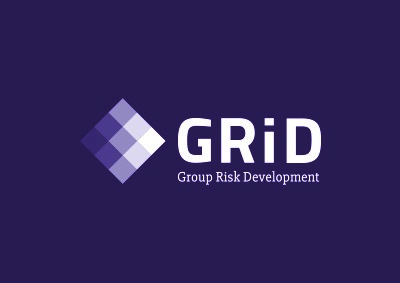Press release 14 May 2018.
Common misconception that Group Life Assurance does not pay out for death by suicide, says GRiD. GRiD aims to dispel myths during Dying Matters Week
Group Life Assurance (GLA) is the most commonly provided of the group risk protection products (employer-sponsored life assurance, income protection and critical illness). Contrary to widespread belief among employees and some employers, GLA does provide cover for death by suicide.
During Dying Matters week, 14 – 20 May 2018, GRiD, the industry body for the group risk protection sector, wants to address some of the wrongly held perceptions about GLA, in particular the view that someone’s family would not receive a pay-out should their loved one take their own life.
In the UK, around 6,000* people die by suicide each year, meaning a great number of families are left devastated by their loss. GLA not only helps families avoid financial hardship (the average pay-out for a GLA claim during 2017 was £113,479**) but it can also provide bereavement and other support.
By dispelling the myths around GLA and suicide, GRiD hopes that employers may see GLA as a more comprehensive product than they may have originally thought, and that more will consider offering the benefit to their staff.
Non-financial support
In addition to the financial payment, many GLA providers include extra help and support for employees and their families, perhaps via an Employee Assistance Programme (EAP), which can be a great support for mental health issues and in the prevention of suicide and attempted suicide.
Support may also be provided for the managers within the organisation around issues such as managing staff with mental health conditions and supporting staff coming to terms with a bereavement.
This help is available on a daily basis, not just when a claim arises. Some insurance providers now also give access to a vast array of online tools, portals and hubs aimed at improving mental resilience and giving advice and guidance to employers and line managers. Often these can be freely available online for anyone to access, customer or not.
“Costs are prohibitive”
Another commonly held view is that GLA is expensive, with many employers believing their employees would prefer the budget to be spent elsewhere on more immediate rewards and benefits. In fact, GLA typically costs less than half a per cent of payroll and HR departments would be hard pushed to find other benefits that offer such good value with so much inherent extra support.
Dave Middleton, managing director at Aon Employee Benefits Warwick, and a chair of one of GRiD’s committees, has had personal experience of a family death by suicide. He said: “When someone close to you dies suddenly in this way, you experience a rollercoaster of emotions and it can take some time for life to return to anything that you recognise as normal. During this time, life’s costs and bills accumulate and can become an enormous source of stress for the grieving family if there is no financial plan in place to deal with them. Financial support from an insurance pay-out not only helps cover funeral costs but can also give family members the financial breathing space to come to terms with their loss over a period of time, without immediately having to return to work to maintain an income.
“Group Life Assurance is a really accessible product with low premiums that employers should be confident in offering to staff knowing that it has more hidden benefits and fewer exemptions than is often presumed.”
- Ends –
* ONS suicides in the UK data: https://www.ons.gov.uk/peoplepopulationandcommunity/birthsdeathsandmarriages/deaths/bulletins/suicidesintheunitedkingdom/2016registrations
** The GRiD claims data survey was undertaken among its provider members and the figures are an accurate representation of the current Group Risk market in its entirety. Respondents provided figures for Group Life, Group Income Protection and Group Critical Illness claims for 2017.
For further information please contact:
Sharon Mason
SMUK Marketing and PR
smason@smuk.org.uk
Mob: 07747 611773
Land: 01252 843350
Katharine Moxham
Spokesperson for GRiD
Katharine.moxham@grouprisk.org.uk
Mob: 07887 512508
Notes for editors
About GRiD
Group Risk Development (GRiD) is the industry body for the group risk protection sector, promoting the value to UK businesses of providing financial protection for their staff, enhancing their wellbeing and improving employee engagement. Our membership includes insurers, reinsurers and intermediaries who have a collective wealth of experience built over years of operating in the group risk protection market. Under the chairmanship of Steve Bridger (MD Group Protection, Corporate, Aviva UK Life) GRiD aims to promote group risk through a collective voice to Government, policymakers, stakeholders and employers.
GRiD works with government departments and regulators involved in legislation and regulation affecting group risk benefits, and with other organisations involved in the benefits and financial protection arenas. GRiD also seeks to enhance the industry’s standing by encouraging best practice and by participating in industry-wide initiatives such as the professional qualification in group risk managed jointly with the Chartered Insurance Institute.
GRiD’s media activity aims to generate a wider awareness and understanding of group risk products and their benefits for employers and employees.
GRiD’s dedicated spokesperson, Katharine Moxham, provides expert media comment on a full range of group risk issues.
Follow Katharine Moxham on Twitter @KMoxham


